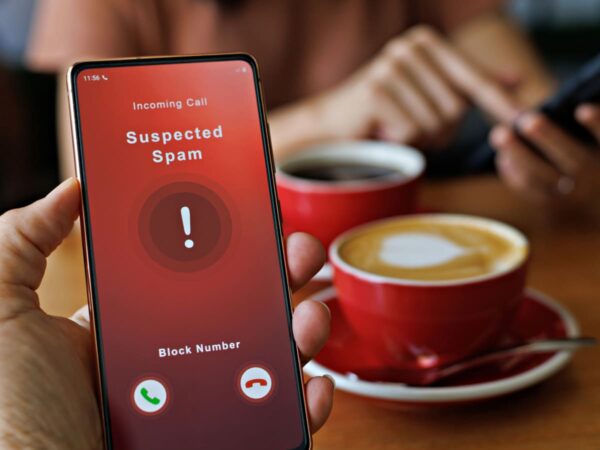warning: 18774530539, 1-877-453-0539, 18885776012, 8774530539, 18774530539, 7786121000, 18002401627, 6043421000, 8888112323, 514 375 2413, 778-612-1000, 8773627434, 4169355555, 18773627434, 778 612 1000, (662) 255-3743, 8663102355, 8885776012, 604-342-1000, +1 (514) 375-2413
Spam calls have become an increasing nuisance for individuals across the globe, including Canada. The rapid growth of technology and the accessibility of personal information have made it easier for spammers to target unsuspecting victims. In this article, we will delve into the world of spam calls, focusing on various phone numbers used for such calls in Canada, the potential risks they pose, and effective measures to mitigate their impact.
In an era where smartphones have become an extension of ourselves, receiving an unsolicited and persistent spam call can be a frustrating experience. These calls come in various forms, from robotic voices claiming you’ve won a prize to threats of legal action for unpaid dues. In Canada, the issue of spam calls has gained significant attention due to the sheer volume of such calls targeting citizens.
Understanding Spam Calls
Spam calls encompass a range of deceptive practices that fraudsters employ to extract personal information or money from unsuspecting individuals. These calls often promise incredible deals, threaten legal action, or pose as legitimate organizations. Two common tactics used by spam callers are impersonation and scare tactics.
Different Types of Spam Calls
- Prize Winnings: Callers claim you’ve won a prize and request personal information or a fee to claim it.
- Financial Scams: Fraudsters pose as banks or government officials, seeking confidential financial details.
- Healthcare Scams: Calls offering unverified medical products or treatments.
- Robocalls: Automated recordings delivering a scripted message, sometimes with pressing instructions.
The Toll-Free Trap
Toll-free numbers like 18774530539 and 1-877-453-0539 are frequently used by spammers to appear legitimate. However, legitimate organizations also use these numbers, creating confusion.
The Infamous Numbers
Certain phone numbers have gained notoriety for their involvement in spam calls in Canada. Some of these include:
- 18774530539
- 1-877-453-0539
- 8774530539
- 7786121000
- 18002401627
- 6043421000
These numbers often change, but remaining cautious is vital.
How Do These Calls Work?
Spam calls employ several techniques to deceive recipients. One common tactic is caller ID spoofing, where the caller manipulates the displayed number to appear legitimate. Another is the use of automated robocalls, flooding thousands of calls daily.
Risks and Annoyances
Spam calls pose various risks, including:
- Privacy Invasion: Sharing personal details with scammers.
- Financial Scams: Losing money through fraudulent schemes.
- Disruption of Daily Life: Constant calls causing stress and anxiety.
Protecting Yourself
Protecting yourself from spam calls requires a multi-pronged approach:
- Use call blocking apps to filter out suspected spam numbers.
- Register your number with the National Do Not Call List to reduce unwanted calls.
- Approach all calls with skepticism and vigilance, even if they seem legitimate.
Legal Actions and Reporting
The Canadian Anti-Fraud Centre handles reports of spam calls and offers valuable resources. The Telecommunications Act empowers regulators to take action against spammers.
Spam Calls vs. Legitimate Calls
Differentiating between spam calls and legitimate ones can be challenging. Factors such as urgency, the request for personal information, and the tone of the caller can provide clues.
The Role of Service Providers
Telecom companies are investing in advanced call filtering technologies to identify and block spam calls before they reach you.
The Fight Against Spam Calls
The Canadian government and tech companies are taking steps to combat spam calls:
- Government initiatives to tighten regulations and penalties.
- Technological advancements to identify and filter out spam calls.
Your Role: Be Informed and Alert
Educating yourself about spam call tactics empowers you to:
- Educate family and friends about these scams.
- Avoid falling for traps set by fraudsters.
Conclusion
Spam calls are a persistent issue in Canada, causing annoyance and posing risks to individuals. By staying informed, leveraging technology, and maintaining skepticism, you can protect yourself from falling victim to these scams.
FAQs
Q 1: Are all toll-free numbers used for spam calls?
A: No, while some spammers use toll-free numbers, legitimate organizations also employ them.
Q 2: How can I report spam calls?
A: You can report spam calls to the Canadian Anti-Fraud Centre.
Q 3: Are all robocalls considered spam?
A: Not necessarily, some robocalls might be from legitimate sources, such as appointment reminders.
Q 4: Can I completely eliminate spam calls?
A: While you can’t eliminate them entirely, using call-blocking apps and being cautious can significantly reduce their frequency.
Q 5: What’s the most common aim of spam calls?
A: The most common goals are extracting personal information and money through deceitful means.




